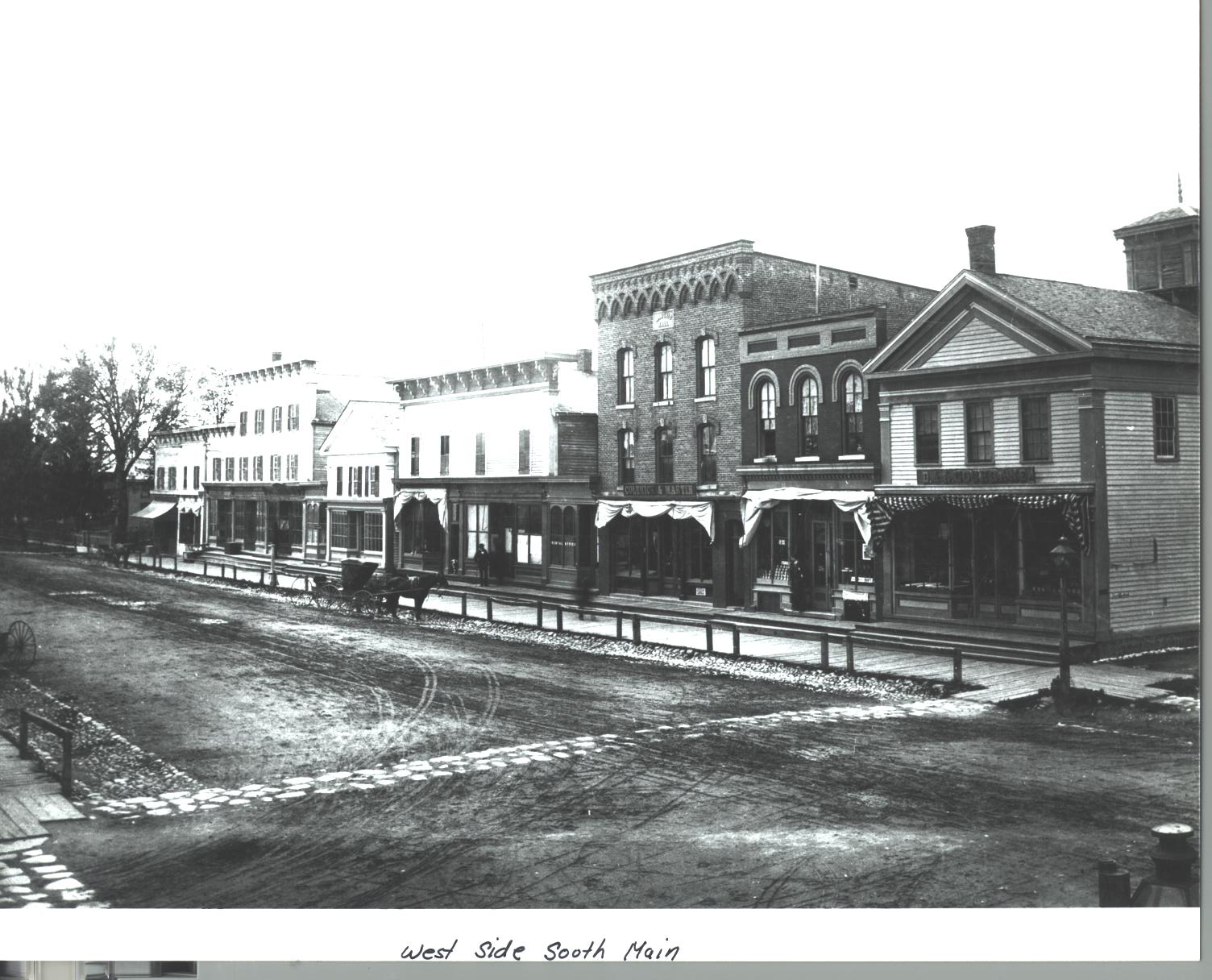Established in 1984

The Almont DDA was formally established by the Almont village council on November 7, 1984 with the adoption of Ordinance Number 139. This ordinance established the district boundaries and established a 20 year life for the DDA. Amended in 1992 and again in 1998, the revised plan extended the life of the DDA to 2034 or until all debts are retired. The purpose of the Development Plan, as written by the DDA of the Village of Almont, is to prevent deterioration within the business district; to promote economic growth; to encourage historic preservation; and to establish identity for the Village of Almont.
In addition to the public improvement plan proposed to be financed with public funds under the direction of the DDA, the overall plan includes as a goal the establishment of private development through private investment in cooperation with the DDA and the Village.
Vision: An economically vibrant and historically preserved downtown shared by our village and township residents, that supports the community at all times, in a way that is sustainable and forward thinking.
Mission Statement: To provide direction and resources to downtown business owners to maximize Almont’s potential and create a lively downtown. It strives for the economic advancement of the downtown through promotion of its businesses and events while maintaining Almont’s historic roots and strong sense of community. Its goal is to collaborate with other local public and private entities to enrich the collective community experience through a vibrant downtown district.
-
Improvement, renovation and development of exteriors of commercial buildings through loans and grants.
-
Encourage the renovation of rear facades and develop rear entrances convenient to public parking areas.
-
Maintain the historic character of existing structures and encourage new development to conform to the historic identity of the district.
-
Development of the property zoned for industrial/commercial use within the district.
-
Improvements of infrastructure within the district including water, sewer, sidewalks and paving.
-
Construction and improvement of parking lots within the district.
-
Commission marketing studies and market the district through staging promotional events.
-
Maintain landscaping decorative lighting, holiday decorations, benches, and park areas.
-
Encourage the establishment and development of residential complexes within the authority.
-
Promote energy conservation and improve heating facilities by offering financial incentives to energy-saving incentives.



Village of Almont Designated a Best Practices Community
 Almont is one of six communities across the state of Michigan identified for the strategies they employ to foster entrepreneurial growth and economic development, according to the annual eCities study. The study, conducted by iLabs, University of Michigan-Dearborn’s Center for Innovation Research, identified the Village of Almont, Delta Charter Township, City of Madison Heights, City of Midland, City of Saline and City of Sault Ste. Marie for their incentives, innovative programs and best practices geared toward business development
Almont is one of six communities across the state of Michigan identified for the strategies they employ to foster entrepreneurial growth and economic development, according to the annual eCities study. The study, conducted by iLabs, University of Michigan-Dearborn’s Center for Innovation Research, identified the Village of Almont, Delta Charter Township, City of Madison Heights, City of Midland, City of Saline and City of Sault Ste. Marie for their incentives, innovative programs and best practices geared toward business development
“We are thrilled that the local partnerships we have fostered, regional cooperative efforts and placemaking initiatives have allowed the Village of Almont to be recognized as a Best Practices Community. For a small town, we have worked hard to be pro-active in utilizing all the economic development tool available to us and it is apparent that it has made a difference. We have been successful in attracting new businesses to our downtown, promoting building improvements and assisting our local manufacturers by providing modern infrastructure improvements needed to compete in a global marketplace. Combined with an outstanding quality of life, these efforts create the Almont Advantage and make us a destination of choice,” said Nancy Boxey, Director, Almont Downtown Development Authority.
As part of the award recognition, the eCities team created a local Almont Video which highlights some of our local companies that have chosen Almont as their location of choice. Each of these local businesses has made significant investments in building improvements/expansion, capital and employees. They embody the importance and contributions that small, local businesses provide to a community and represent a sample of the broader vibrancy happening in Almont. Almont is a community that is truly Growing in the Right Direction.
“eCities highlights how local governments from across Michigan are growing their communities and supporting businesses. Being a university, we want to share the successes and educate about the best practices that can be used by other communities in the state,” said Tim Davis, director, iLabs.
The eCities research surveyed 83 communities from 30 counties in Michigan that are home to 26 percent of Michigan residents and 33 percent of its college graduates. These communities count nearly one quarter of the state’s entrepreneurs with over $2.6 billion in self-employed income as residents. These communities also had more than $12.3 billion in 2013 commercial construction and account for more than 31 percent of Michigan’s commercial property.
“We are seeing the nature of economic development evolving, and eCities is a tool to help local governments demonstrate their role in the changing economy. These governments are supporting unique and innovative efforts locally, while collaborating regionally to help Michigan business compete in an ever-changing business climate,” Davis said.
The communities were honored on, Thursday, November 13, at UM-Dearborn. Support for eCities is provided in part by the DTE Energy Foundation, Miller Canfield, Oakland County Economic Development and Community Affairs and UM-Dearborn’s College of Business.
The annual eCities research project, which began in 2007, uses data supplied by the participants, as well as other public records to assemble a six-factor, 32-item index of entrepreneurial activity, looking at such factors as clustering, incentives, growth, policies, community and education. The study focuses on entrepreneurship because of its importance to expansion and diversification of Michigan’s regional economies and the impact small businesses have on job creation. To date, 197 communities across Michigan have participated in the study.
